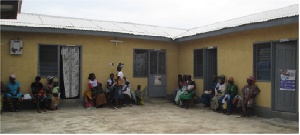 Lack of electricity adversely affecting service delivery
Lack of electricity adversely affecting service delivery
The residents of Kangba in the Wa West District have expressed concern over the lack of electricity at the Community-based Health Planning and Services (CHPS) compound at the community.
According to them, health personnel at the facility relied on flashlights to work at night to deliver babies.
Madam Agnes Soretey, a resident of the community, told the Ghana News Agency (GNA) at Kangba that the situation was negatively affecting quality service delivery at the facility, especially to pregnant women.
“Because there are no lights at the CHPS compound if you are to deliver at night you have to go to Wa to deliver.
“The road is also not good and when they put a pregnant woman in a tricycle by the time she gets to Wa she is already weak”, she explained.
The residents said they sometimes felt reluctant going to the health facility at night for service delivery, saying “how can a nurse use phone light to deliver a a baby”.
Mr Richard Wulo, the Assembly Member for Siiru Electoral Area, told the GNA that some patients and pregnant women had to walk long distances to other health facilities where electricity was available to seek healthcare.
He said due to the lack of electricity at the Kangba facility, the health staff could not store some essential medicines, which required refrigeration, and described the situation as worrying.
“People don’t go to the Kangba CHPS compound because the medicines that are supposed to be stored there are not there because there is no electricity.
So some of the medicines are stored at Dandafuro or places that have lights and those places are also far from Kangba adding because of that people don’t go to the Kangba CHPS compound when they are sick”, Mr Wulo explained.
Another challenge the people identified was the lack of water at the health centre, which forced pregnant women and sick people to carry water from their houses to the CHPS compound before they could receive service delivery.
Meanwhile, the United Nations (UN) required all member states that were signatory to the 17 Sustainable Development Goals (SDGs) to ensure access to quality primary health care services by their citizens at all levels by 2030.
Despite efforts of the government of Ghana to ensure access to Primary Health Care (PHC) at all levels through the CHPS module, factors such as lack of potable water and electricity at some CHPS facilities impeded service delivery at those facilities.